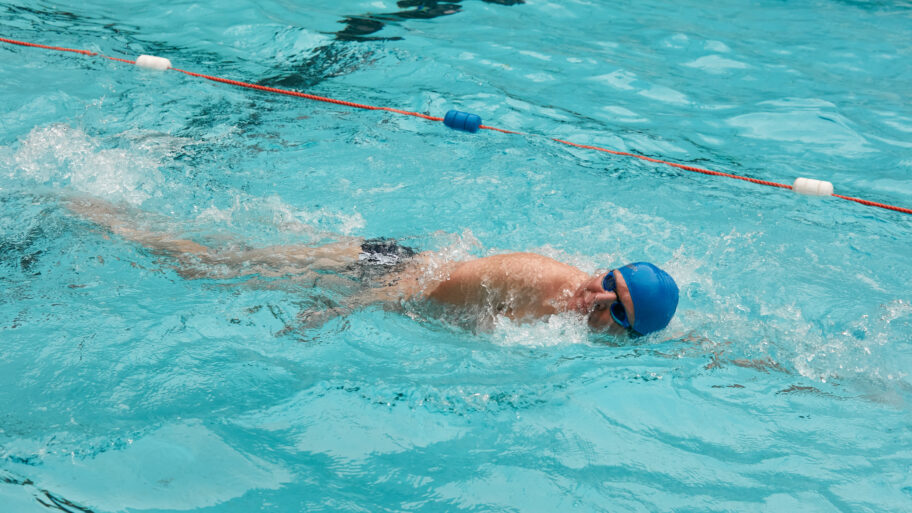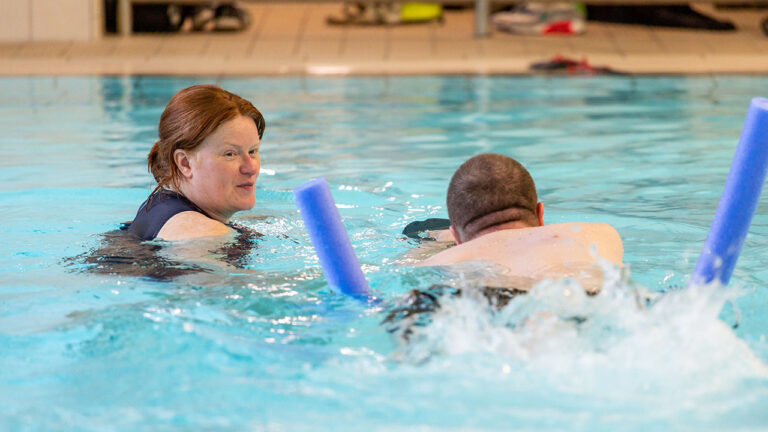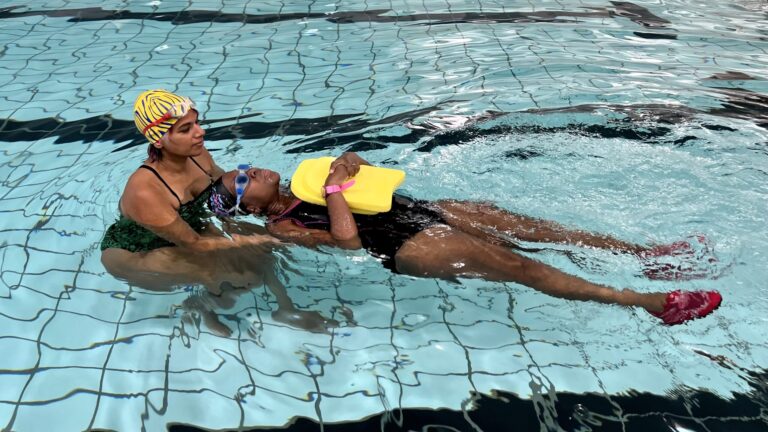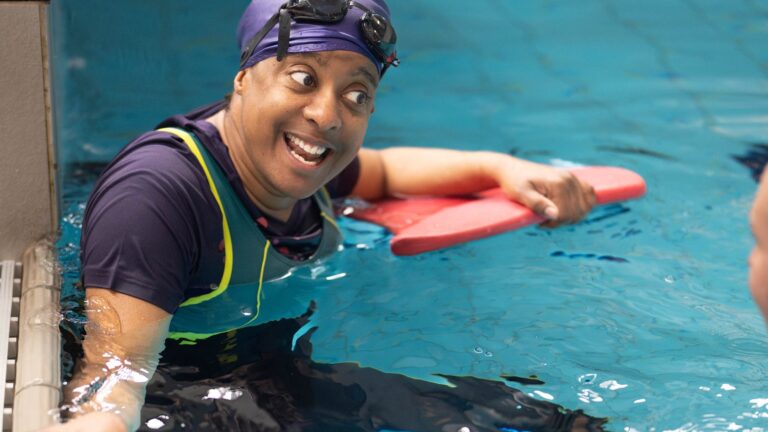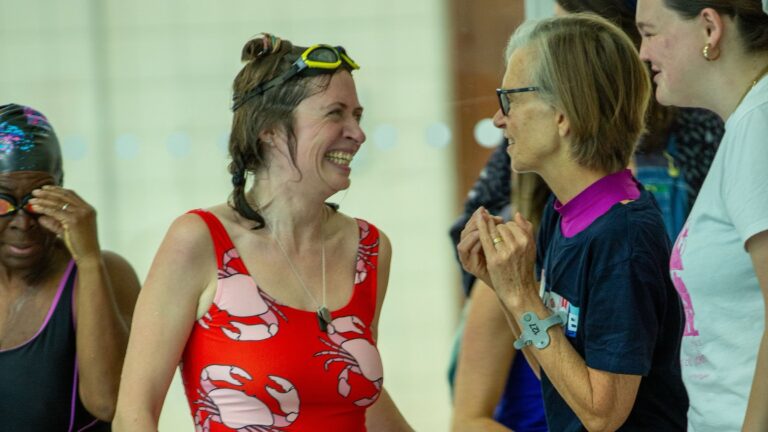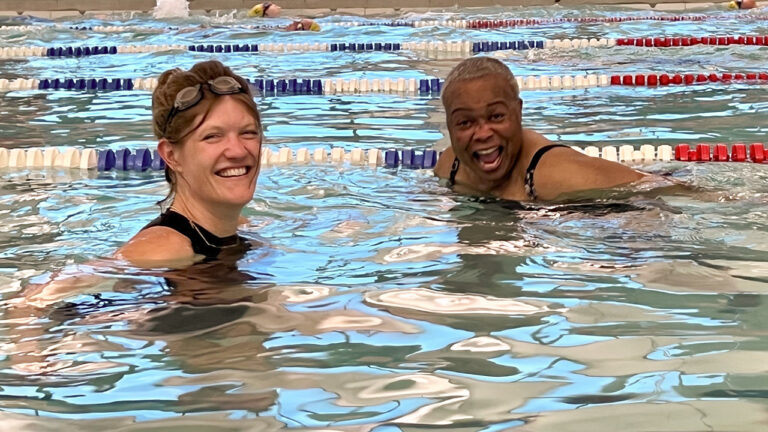Swimming is an enjoyable experience for most people, but it can bring even better benefits for people with disabilities. Today, we share the top 3 reasons why swimming is a great activity for those individuals.
A Full-Body Workout, inside Out
From head to toe, swimming not only tones your muscles and builds your strength and endurance, but also increases your heart rate. Contrary to other activities like running and aerobics, swimming doesn’t put any stress on your joints. In addition, the different techniques (breaststroke, backstroke, sidestroke, butterfly or freestyle) each focus on different muscle groups as the water provides a gentle resistance.
It’s also proven that your lungs and heart get stronger thanks to swimming, helping to make your cardiovascular system more resistant. According to swimming.org, 30 minutes of leisure swimming accounts for 220 calories, which is the equivalent of the same time of cycling at 14 mph.
A Safe Exercise for Most Conditions
As they are supported by water, swimming is a safe option for people with arthritis or an injury, as it can help reduce some of the pain and stiffness. People with limited mobility or physical conditions may also reap some benefits since the water provides them with both buoyancy and gentle resistance. It’s also worth noting that pregnant women and their babies can benefit too as swimming can be performed in all three trimesters.
It’s also good for people with asthma thanks to the humid environment of indoor pools in addition to the breathing exercises that help those individuals expand their lung capacity and gain control over their breathing. Make sure to talk to your doctor first before starting swimming (in particular if you may be sensitive to the chemicals used to treat pools).
Great for Your Mental Health
If you experience insomnia, swimming can help you get better sleep quality. More generally, like all exercise, it helps boost your mood as it releases endorphins in your brain. It also reduces stresses as well as depression, which is good for everybody to get their mental health on track. Another proven benefit to mental wellbeing is learning a new skill, which helps build self-esteem and is particularly important for people with disabilities who face discrimination in their life.
Finally, reports indicate that 50% of working-age disabled people are chronically lonely: going out and meeting new people would greatly help those individuals to build meaningful relationships with individuals of all ages. Swimming activities, especially through clubs like WeSwim and their coffee meeting afterwards, act as key community places and social hubs to make new friends.
Are you looking for a great affordable activity to get fit and have fun? Look no further, get in touch with us to join as a swimmer or volunteer! Watch this example of another club in Maidstone to give you a flavour of what to expect.
